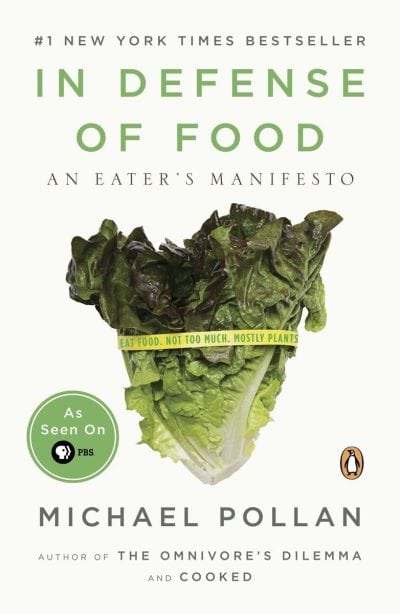

How do you stay physically and mentally fit? How does good sleep really work, what’s the deal with mindfulness – and what does all of this have to do with your brain? In the Health & Nutrition category, you'll find book reviews that dive into exactly these questions.
The books I feature here combine the latest scientific findings with practical tips and fascinating insights. Whether it's about neuroplasticity, sleep hygiene, or mental resilience – there’s something here for everyone who wants to give their health a boost.
Browse through the reviews, discover new perspectives on body and mind – and invest a few pages of reading time in your well-being.
Why We Sleep: Unlocking the Power of Sleep and Dreams
by Matthew Walker, PhD
Dr. Matthew Walker is a Professor of Neuroscience and Psychology and one of the world's leading sleep researchers. In his book, he explains the enormous importance of sleep and its effects on physical and mental health in an easily understandable way. He draws on his own research findings and numerous studies.
He explains the different phases of sleep and what they are responsible for. He describes how the biorhythm is influenced by natural and artificial light and caffeine or alcohol – and what happens in the body when you act against its natural rhythm.
You learn how the biorhythm changes in the course of life. After reading this book, parents will understand why small children do not sleep longer in the morning when you put them to bed later ... and why teenagers are not fit for school at 8:00 am – no matter how early they went to bed.
But why is good sleep so important anyway? Sleep is essential for the transfer of knowledge from short to long-term memory. Sleep promotes creativity, makes you more attractive, strengthens the immune system, prevents diseases such as Alzheimer's, cancer, dementia, depression, and diabetes, and reduces heart attacks.
Of course, the author also gives practical tips on improving the quality of your own sleep (e.g., by going to bed regularly or by adjusting the light conditions a few hours before going to bed).
In summary, good sleep – and therefore reading this entertaining and stimulating book – is one of the best investments you can make in your health.
Suitable as an audiobook? Yes.
In Defense of Food: An Eater’s Manifesto
by Michael Pollan
Michael Pollan is an author and journalist who delves deeply into topics surrounding nutrition, agriculture, and our eating habits. In his book “In Defense of Food: An Eater’s Manifesto,” Pollan presents a simple but powerful thesis: “Eat food, not too much, mostly plants.”
A central argument of the book is that humanity has moved too far away from the natural simplicity of food. Pollan suggests that we reconnect with traditional eating habits, where fresh, unprocessed foods are the focus.
The book is especially valuable for those who want to engage deeply with their diet and those who wish to untangle the often complex and contradictory information about nutrition. It offers a straightforward, understandable approach to a topic crucial for our health.
I found it particularly insightful how Pollan connects nutrition policy, agriculture, and health. For anyone who doesn’t want to be confused by the myriad of diet trends and nutrition tips, this book offers practical, long-term insights.
Suitable as an audiobook? Yes.
Spark: The Revolutionary New Science of Exercise and the Brain
by John J. Ratey
Exercise is not only good for the body but also for the mind. Regular aerobic exercise sharpens the intellect, promotes learning, and makes the brain fit for top mental performance. It reduces stress, lifts mood, boosts motivation, and protects against diseases such as depression, dementia, and attention deficit disorder – all from childhood to old age.
Why is that?
Aerobic exercise strengthens the cardiovascular system, thus ensuring the transport of sufficient nutrients to the brain and promoting the production of neurotransmitters and hormones responsible for the growth of brain cells ("neurogenesis") and their connections with each other.
Even though the author tries to describe the biological connections in an understandable way for laypeople, he sometimes delves deeply into the scientific background. You have to concentrate hard if you want to follow the explanations of which neurotransmitters are responsible for which functions. As a reading before going to bed, it is therefore only suitable to a limited extent.
I recommend the book to those who want to understand the scientific background in detail. To all others, I recommend regular exercise :-)
Suitable as an audiobook? Yes.
Brain Food: The Surprising Science of Eating for Cognitive Power
by Lisa Mosconi, PhD
Lisa Mosconi is a doctor of neuroscience and nuclear medicine and an expert in Alzheimer's prevention and nutritional counseling. In her bestseller, she explains how our diet affects our brain and which foods we should (and shouldn't) eat to keep our brain fit for peak performance well into old age.
The author gives numerous practical tips and advice, such as what kind of olive oil to buy, which types of meat and fish and which dairy products are recommended (and which are not), and what to look out for in food labels.
She dispels common myths, explaining, for example, why most low-fat foods tend to be bad for us and why chocolate and wine (in the right types and amounts) are healthy.
The book is based on years of research and is written easily for laypeople to understand. The author does not expect readers to completely change their eating habits overnight but provides specific, prioritized recommendations for a gradual transition.
The book concludes with an extensive collection of healthy, delicious, and easy-to-implement recipes.
Suitable as an audiobook? Only limited due to the just mentioned recipe collection, which is unfortunately not supplied as a PDF.




